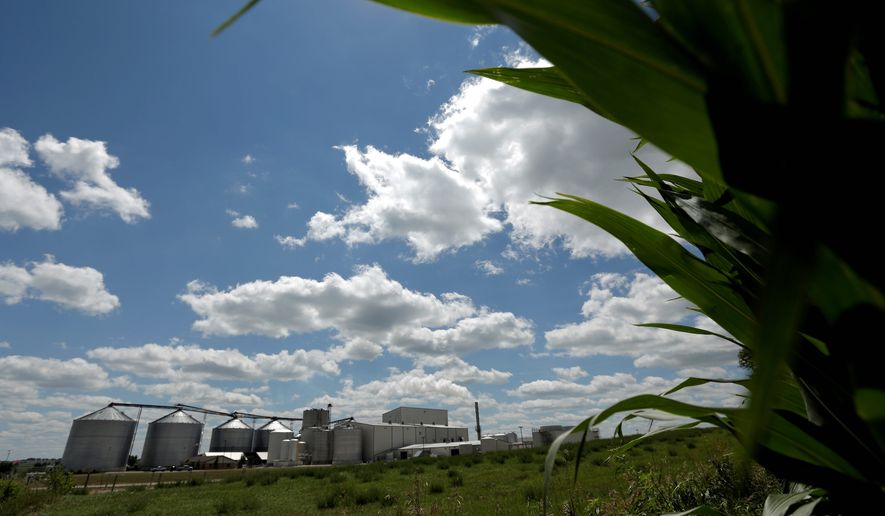U.S. ethanol champions are bracing for the possibility that Brazil, the largest economy in Latin America, could soon land a devastating blow in what increasingly looks like an all-out global trade war over alternative fuels.
Brazil’s leaders will decide by the end of this month whether to slap a 20 percent tariff on American ethanol, a step that analysts say largely is driven by the country’s desire to freeze out foreign products for its own economic and industrial gain. The move, which appears likely, would come on the heels of China also slapping harsh tariffs on U.S. ethanol and related products earlier this year.
Brazil’s decision could represent a serious hit to domestic producers in the U.S., who ship more ethanol to Brazil than any other country, with the exception of Canada. The Renewable Fuels Association (RFA), the ethanol industry’s top trade group, says that Brazil imported nearly 21 million gallons of American ethanol in June alone.
For Brazil, the provocative step would prove that the country envisions itself as an ethanol producer capable of competing with the U.S.
“I’m starting to see more pieces and events happening that show that Brazil is doing this to build and beef up their already large ethanol industry,” said Yuan-Sheng Yu, an analyst with the research firm Lux Research who specializes in alternative fuels markets.
“From a production standpoint, it’s really Brazil and the U.S. when it comes to ethanol,” he added.
On July 26, Brazilian officials announced that they would make a decision on the tariff within 30 days. If implemented, the tariff would allow 132 million gallons of U.S.-produced biofuels into the country with no financial penalty.
Any ethanol beyond that would be subject to the 20 percent tariff. Through just the first six months of 2017, U.S. producers sent more than 276 million gallons of ethanol to the South American nation, meaning that if current trends continue, the vast majority of American exports would be subject to harsh tariffs.
The needs for such massive amounts of ethanol stems largely from Brazil’s requirement that gasoline contain 27 percent ethanol — far higher than U.S. fuel supplies, which typically contain just 10 percent ethanol. Higher blends are also widely available across Brazil.
Should Brazil institute the tariff, it wouldn’t be the first time the two nations have found themselves in a trade war over ethanol. In years past, Brazil also has slapped financial penalties on American imports; the most recent tariff expired at the end of 2011, and since then, U.S. exports have continued at high levels each year.
The RFA, which has urged the Trump administration to confront China about that country’s tariffs on American products, also is prodding Brazil to rethink its current course and abandon the plan, which the organization says would harm both nations’ economies.
“There will be no winners, only losers. Consumers will pay more for ethanol blended gasoline in Brazil. Farmers in both countries will suffer from lost markets. Carbon emissions will rise if U.S. ethanol is replaced by increased petroleum,” Bob Dinneen, RFA president, and Joel Velasco, the former head of the Brazilian Sugarcane Industry Association, wrote in an op-ed that ran in the Brazilian newspaper Estado de S. Paulo late last month.
“Yes, U.S. ethanol exports to Brazil have been on the rise over the past two years, primarily because world sugar demand has encouraged Brazilian mills to prioritize sugar over ethanol, leaving domestic ethanol production short of supply,” they continued. “But the fact U.S. production can meet this temporary need is a good thing for Brazilian consumers, and should not be used as an excuse to resurrect a protectionist policy of a bye-gone era.”
Indeed, there would most certainly be repercussions for the U.S. if Brazil pursues ethanol tariffs. While Brazil is the second-largest importer of American products, the U.S. also imports massive amounts of Brazilian ethanol — 850,000 barrels last year alone, according to the federal Energy Information Administration.
Brazil primarily produces ethanol from sugar cane, and that fuel is classified as an “advanced” biofuel under the U.S. Renewable Fuel Standard, legislation signed into law in 2007. The law calls for the nation to use certain amounts of advanced fuels each year, making it necessary to import products such as sugar cane ethanol even as the U.S. produces massive amounts of more traditional corn ethanol here at home.
Retaliatory tariffs by the Trump administration, or if Brazil were to simply clamp down on exports to the U.S., could hurt America’s ability to hit the targets laid out in the Renewable Fuel Standard.
In Brazil, specialists say ethanol makers are pushing the government to resurrect the tariff, as such a move would certainly be beneficial for their business.
“The producers … were one of the groups that really started to talk about bringing back this import tariff,” said Sophie Byron, managing editor of Americas Agriculture at S&P Global Platts, a leading energy markets analysis firm.
• Ben Wolfgang can be reached at bwolfgang@washingtontimes.com.




Please read our comment policy before commenting.